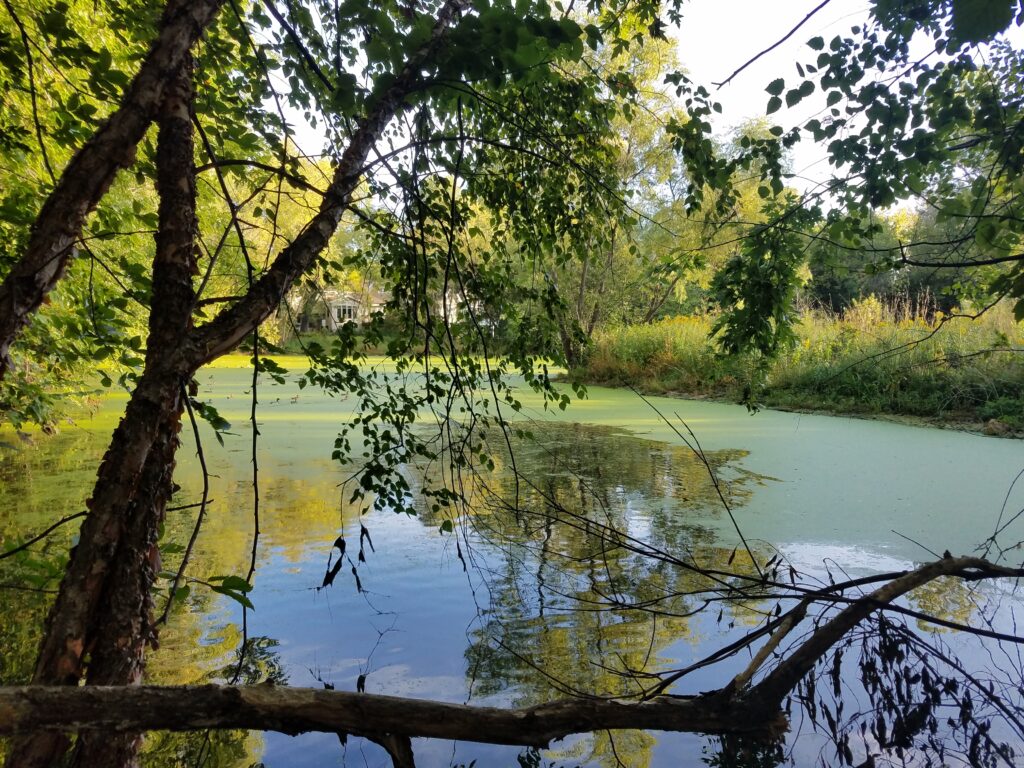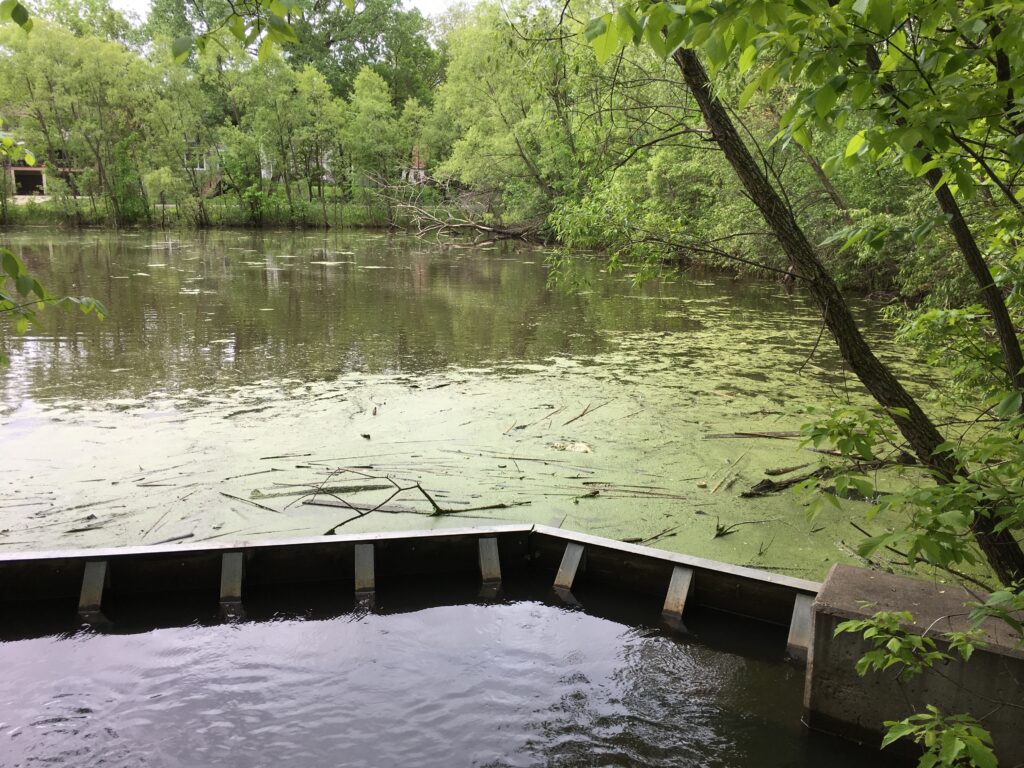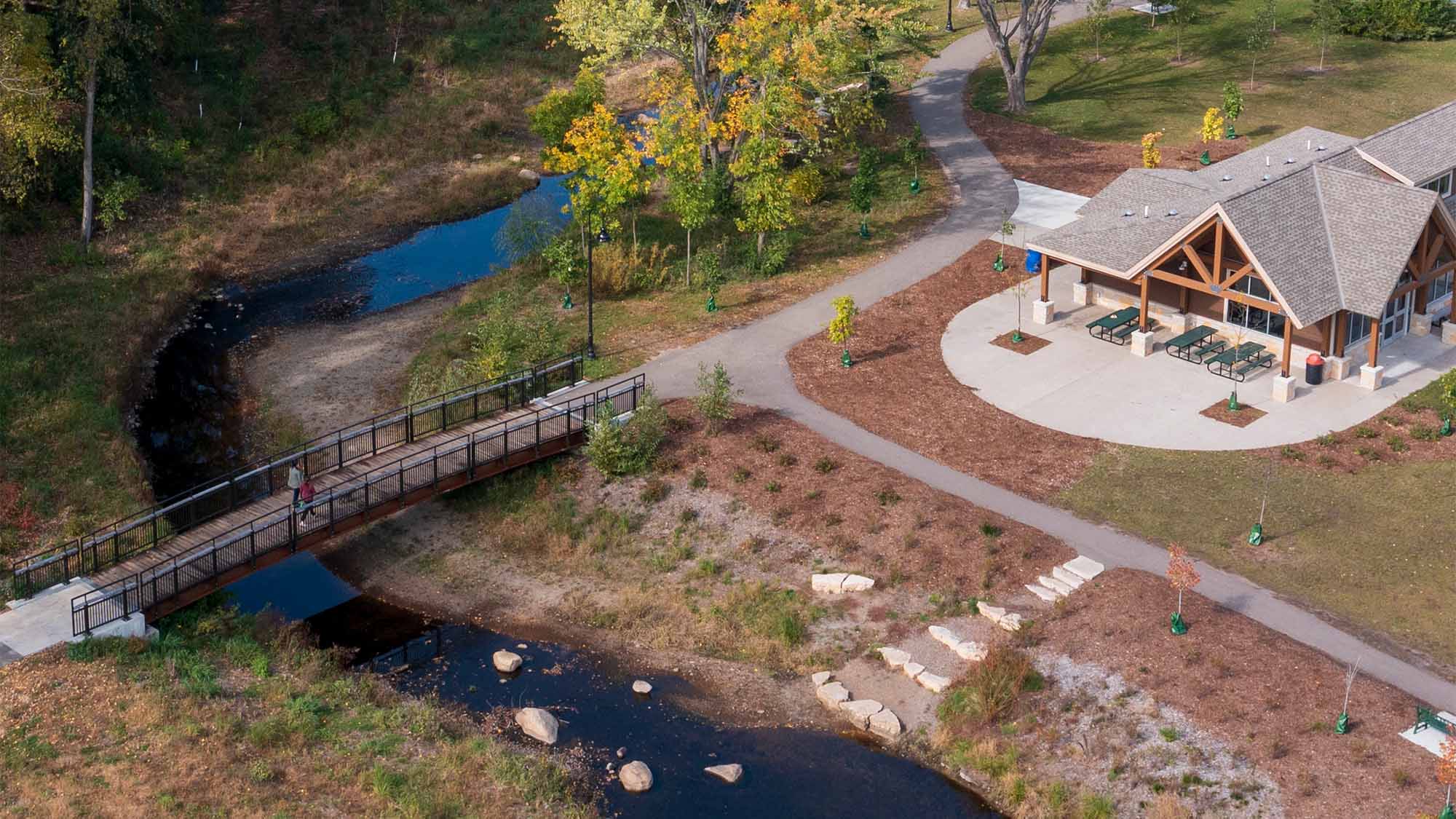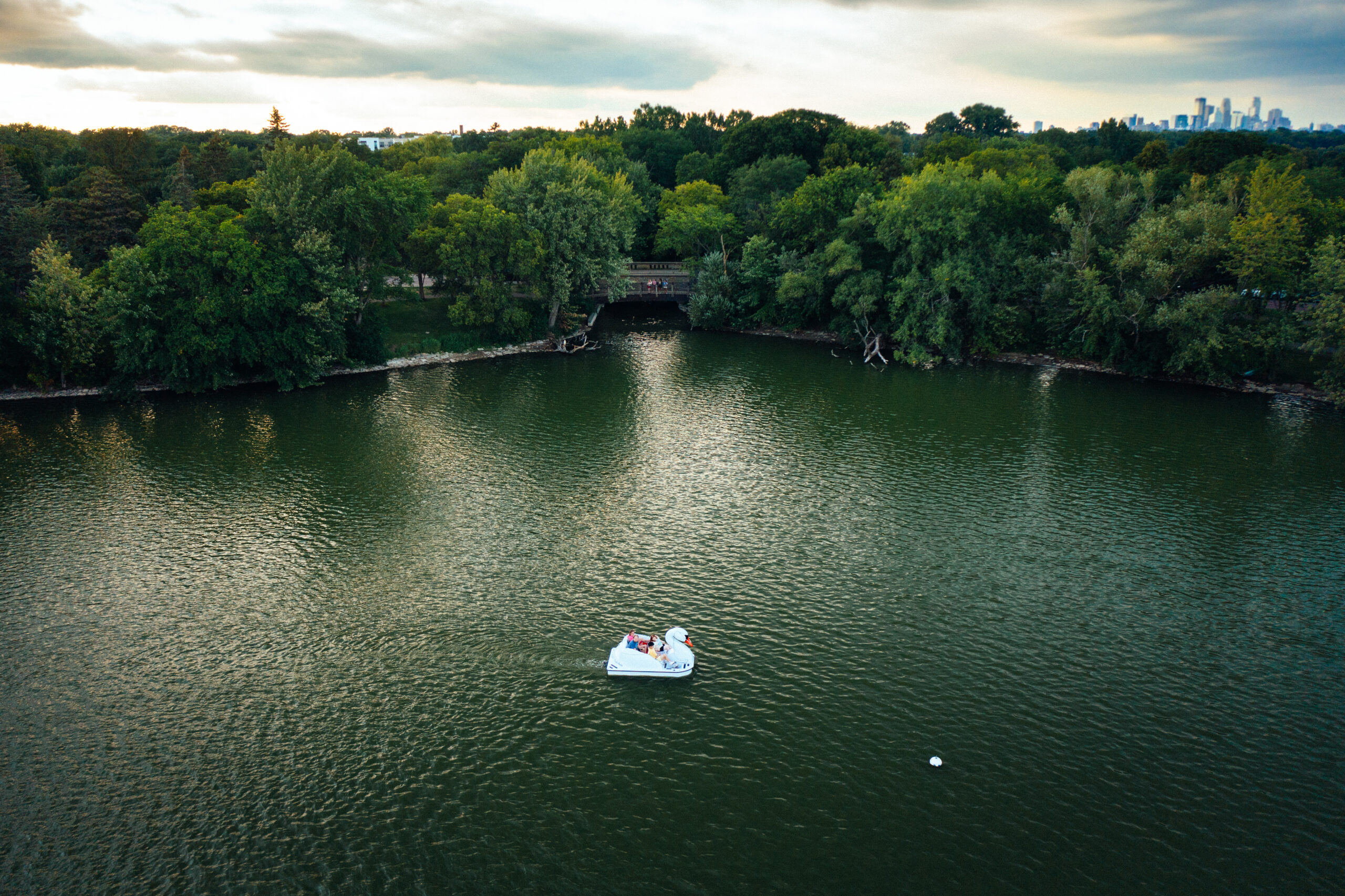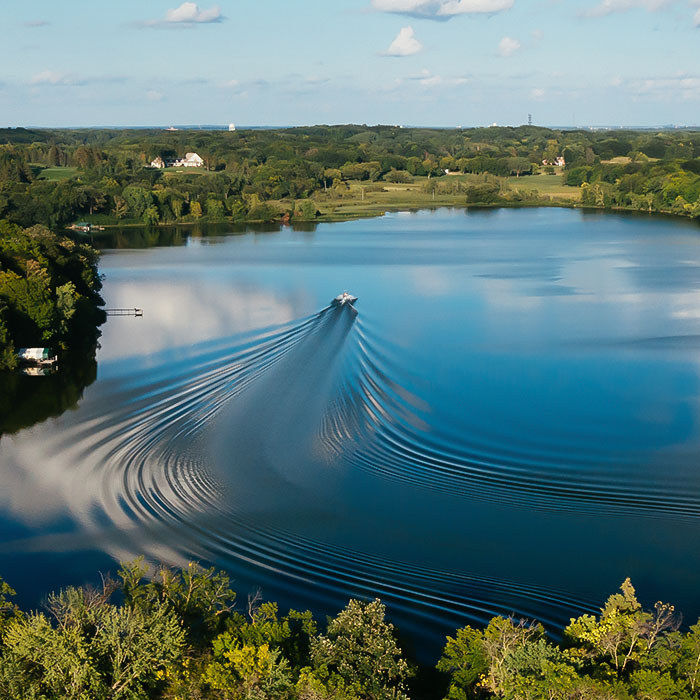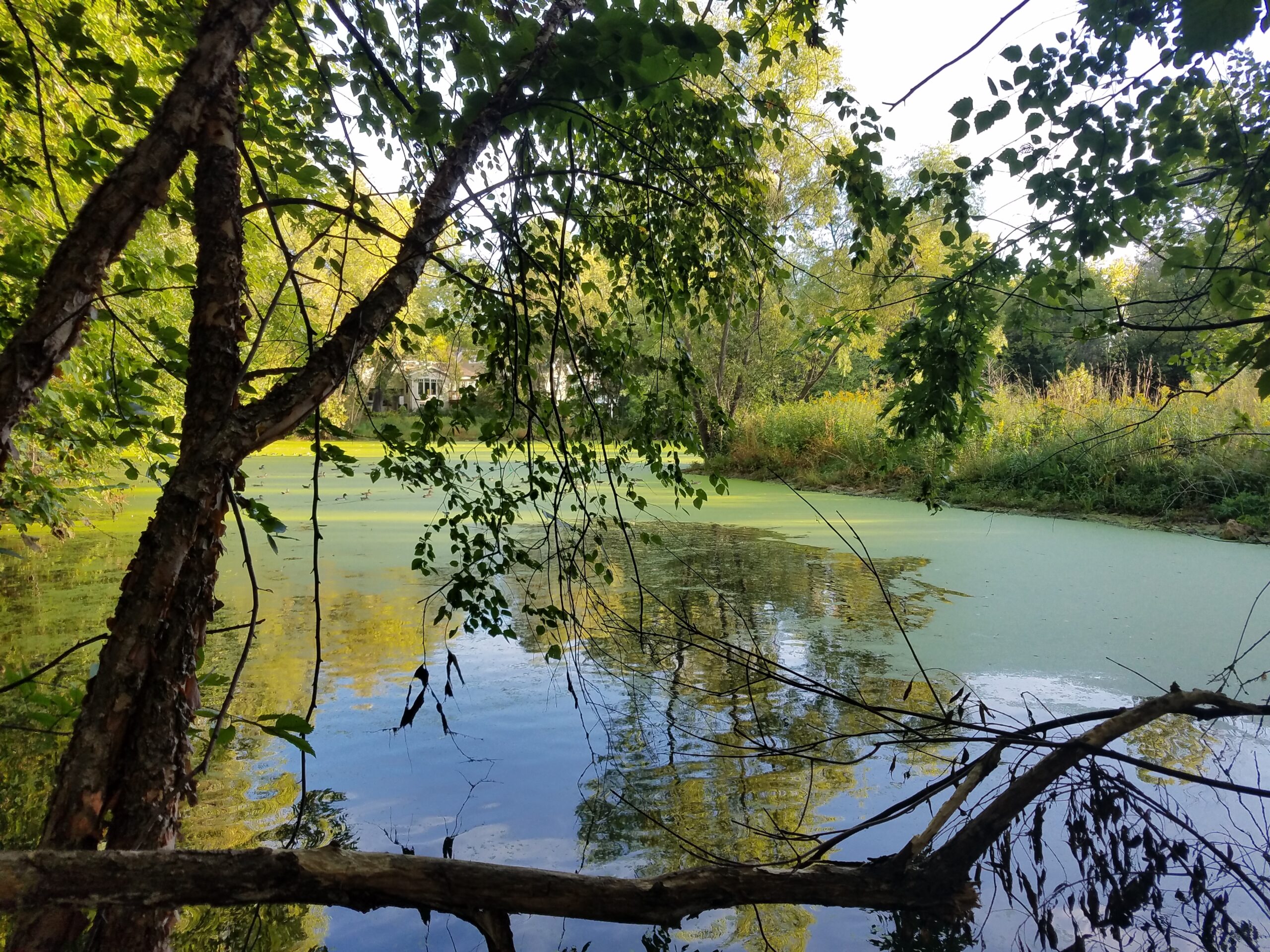
Pamela Park Wetland Restoration Project
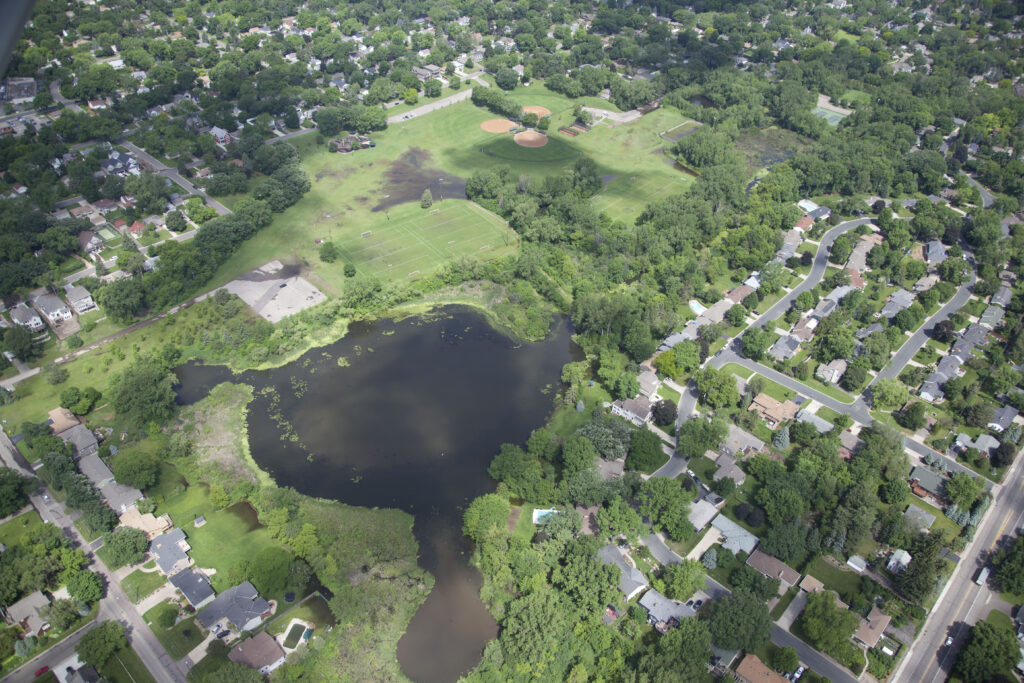
Overview
MCWD coordinated with the City of Edina and concerned citizens to create a strategy for restoring Pamela Lake and improving water quality in Minnehaha Creek. Pamela Park, a 64-acre city park located in Edina, is home to Pamela Lake and a protected wetland that discharges into Minnehaha Creek. Ultimately MCWD and the City of Edina implemented a series of projects, including dredging Pamela Lake and nearby stormwater ponds, constructing three wetland-settling ponds, and building a new nature trail. The new wetland-settling ponds capture and store phosphorous, preventing it from contaminating Pamela Lake and downstream Minnehaha Creek.
Historically, existing wetland areas within Pamela Park were part of a much larger wetland complex that drained 500 surrounding acres and discharged into Minnehaha Creek. Over the years, development of the city park and adjacent residential areas has resulted in substantial filling of wetland areas and sediment deposit from municipal storm sewers. Nutrient and sediment loads flowing into Pamela Lake from urban storm water runoff affected the lake’s water quality and reduced water depths. Shallow water levels in Pamela Lake contributed to dense weed growth and significant reductions in the fish population.
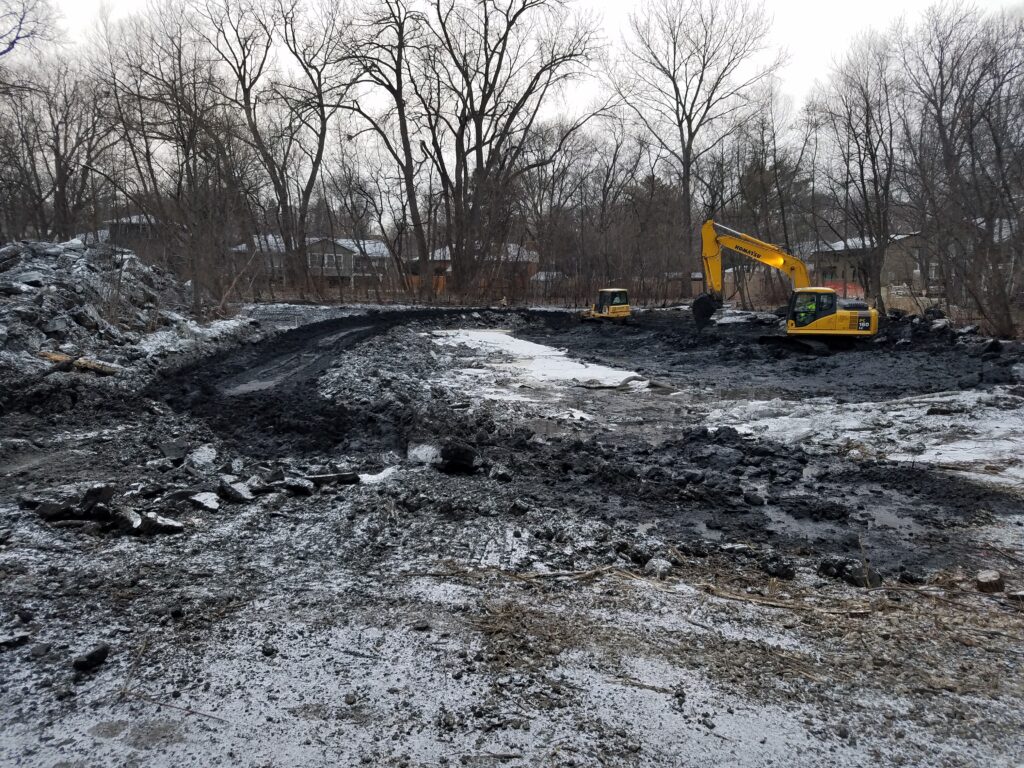
Project Updates
Winter 2019
Maintenance was performed on Pamela Park Pond 1 (the most northern pond) to remove 1,800 cubic yards of accumulated sediment.
Project Timeline

Planning Phase
Planning Phase
January 2000 — Feasibility study completed
September 2000 — Cooperative agreement signed

Design Phase
Design Phase
April 2000 — Plans finalized

Construction Phase
Construction Phase
Winter 2000 — Excavation begins on Pamela Lake and Pamla Lake stormwater basins
March 2001 — Stormwater basin construction completed
August 2001— Planting and seeding
2002 — Excavation ended on Pamela Lake and stormwater basins

Project completion
Project Completion
2002 — Project Completed
By the Numbers
297
acres
of stormwater treated by North ponds
129
acres
of stormwater treated by settling basins
133
pounds
of phosphorus reduced annually
22,000
cubic yards
dredged from Pamela lake
19
acre-feet
of additonal wet detention storage
Project Highlights
- Increased regional wet detention storage
- New nature trail system provides access to the park
- Enhanced aquatic habitat
- Improved water quality with stormwater ponds
Partnership
In 1999, the City of Edina, concerned neighborhood citizens, and MCWD met to discuss approaches to restoring Pamela Lake, improving water quality conditions, and reducing external phosphorus and sediment loads to the lake and downstream to Minnehaha Creek. A collaborative partnership was formed between the City of Edina and MCWD to design, fund and implement the lake cleanup. MCWD provided financial and technical support and the City of Edina managed the project long-term. The Pamela Lake Association was instrumental in supporting improvements to the park and providing neighborhood input throughout the planning process.

Funding
Project Cost: $776,474
MCWD covered the project’s technical costs and the City of Edina covered the short-term and long-term costs associated with managing the project.

